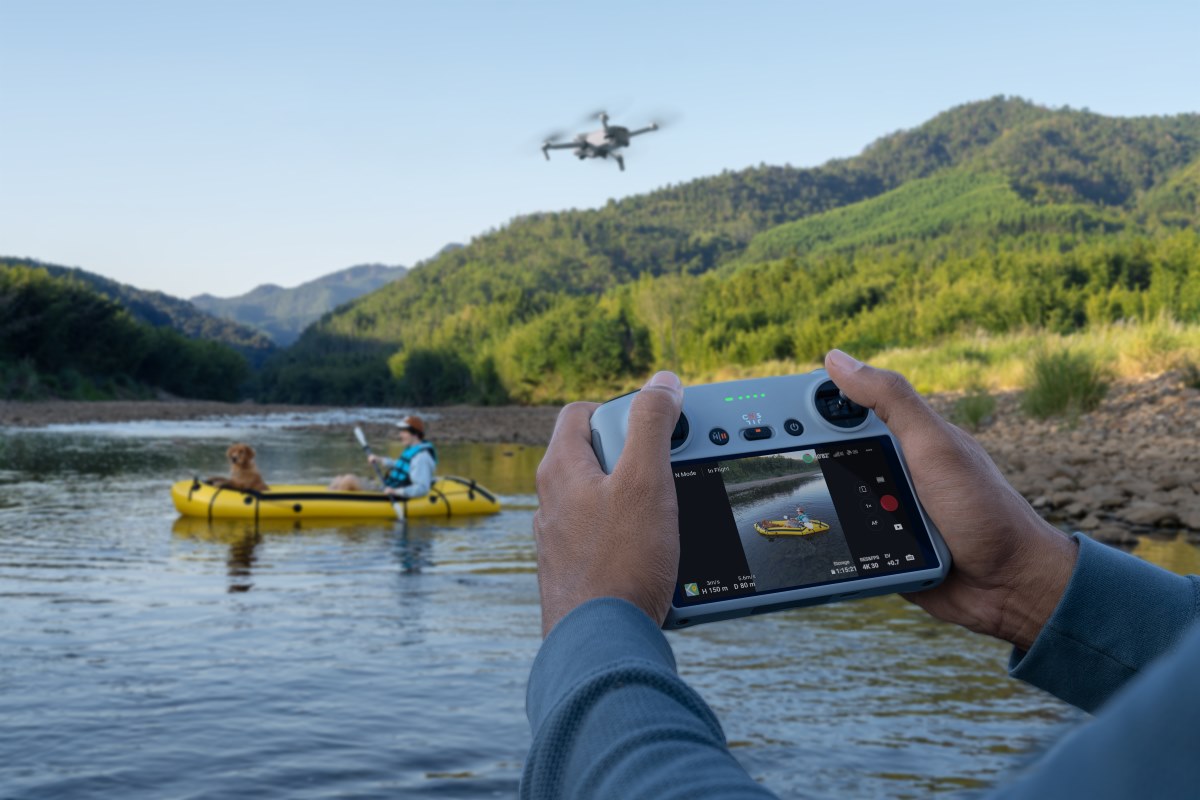
Efforts to undermine the fortunes of the world’s leading drone maker DJI are about to bare a bumper crop fruit with legislative passage of a key defense bill that contains the National Security Drone Act of 2023, which blacklists aerial tech from China-based companies for use in official federal agency work. The wider package now awaits President Joe Biden’s signature.
DroneDJ readers will be forgiven for feeling like they’ve read this story before.
The push to impose official bans on Chinese UAVs has been underway since attaining its first achievement in late 2020 with their inclusion on the Department of Commerce’s Entity List. Since then, drives using wider nets against tech accused of leaking data back to Beijing have been launched with the more specific goal of scooping powerhouse DJI’s gear out of action. Those have succeeded – though only to a degree, thus far – in having the company’s products added to certain influential federal agency blacklists. The initiatives have also inspired similar proscriptive laws in several states controlled by like-minded political actors.
Now that campaign is on the cusp of securing another anti-DJI victory with Thursday’s final legislative clearance of the $886.3 billion National Defense Authorization Act for fiscal year 2024. Awaiting Biden’s signature, that soon-to-be-law contains the American Security Drone Act of 2023 (ASDA), prohibiting agencies from using “the procurement or use by the federal government of unmanned aircraft systems (UAS) that are manufactured or assembled by certain foreign entities, including entities subject to influence or control by China.”
That, within the context of awful US-China relations, is legislativese blacklist longhand for DJI, and even more recently, Autel drones. It’s also an echo of earlier accusations of data leaking and collaboration with Beijing’s human rights’ suppression without presenting any objective evidence to back up the claims. Both companies have vigorously denied all allegations Washington politicians have leveled against them.
Given the increasingly scarce cases of bipartisan agreement needed to pass bills – and the urgency of advancing work on defense-related matters in particular – it’s more than likely Biden will sign the text (even if he suspects a new DJI Mini 4 Pro will be under his Christmas tree in two weeks). Meaning, it’s a safe bet the blacklist within it will be officially extended to all federal agencies very soon.
As dire as that would be in broadening the exclusion of its drones in official work, the development portends even bigger potential threats for DJI and its ally-amid-adversity rival Autel. Especially with the bill’s political backers and US UAV industry supporters already looking to attain near total bans on the craft in the country (that means you, too, leisure and enterprise customers).
Indeed, the Countering CCP Drones Act introduced in March not only seeks the same kind of soon-redundant blacklisting of craft from DJI and other China-based companies as the looming law on Biden’s desk. It would also prevent anyone from flying them, de facto, through its proposed ban on those craft from using Federal Communications Commission (FCC) infrastructure during operation.
Given the virtually inescapable reliance of UAVs on ubiquitous public FCC networks, being cut off from those is synonymous (shorthand, this time) with a total, permanent grounding in US airspace. The bill, in other words, aims to turn every DJI, Autel, and other “suspected” China-produced drone into a pinwheel paper weight.
While that proposed text is clearly more radical in its objective, its authors will be reinvigorated by the National Security Drone Act of 2023 making it into law – and after multiple introductions when first ignored – within the broader defense package.
Top comment by Delena SoDeep
Is the proposed legislation aiming to prohibit the use of all technology manufactured in China by federal agencies? This includes a broad range of devices such as computers, cell phones, and all types of security cameras within government buildings. If this is not the case, then what is the intended purpose of the legislation? The rationale behind such a sweeping ban raises questions about its effectiveness and practicality. Does it extend to components and software, or is it limited to fully assembled products? Understanding the scope and implications of this policy is crucial to evaluate its impact on federal operations and technological infrastructure. 😊
So, too, will the US drone sector, which has lobbied hard for wider blacklists to be applied, and has benefitted from the protectionist penchants of elected officials ready to link prevailing anti-China sentiments with measures seriously handicapping UAV market leader DJI.
That comingling of economic, political, security, and private business interests seemed to resound in the rapid response to the passage by the Association for Unmanned Vehicle Systems International (AUVSI), which despite of its trans-national name is widely considered the primary US drone sector lobby.
“AUVSI commends Congress for incorporating the American Security Drone Act into the FY 2024 NDAA,” its statement issued Thursday said. “Prohibiting federal agencies from purchasing or operating non-secure drones, especially those produced by Chinese firms, is a necessary step in protecting our nation from cyber risks, espionage, and sabotage… Additionally, AUVSI remains committed to working with Congress and the Biden Administration through the Partnership for Drone Competitiveness to advance policies that bolster America’s domestic drone industry, secure American leadership in advanced aviation, and effectively level the playing field for domestic and allied drone manufacturers against foreign subsidized competition. American reliance on foreign adversaries for drone technology must end.”
DJI and Autel – and any individual and business using their craft – have been warned.
FTC: We use income earning auto affiliate links. More.




Comments